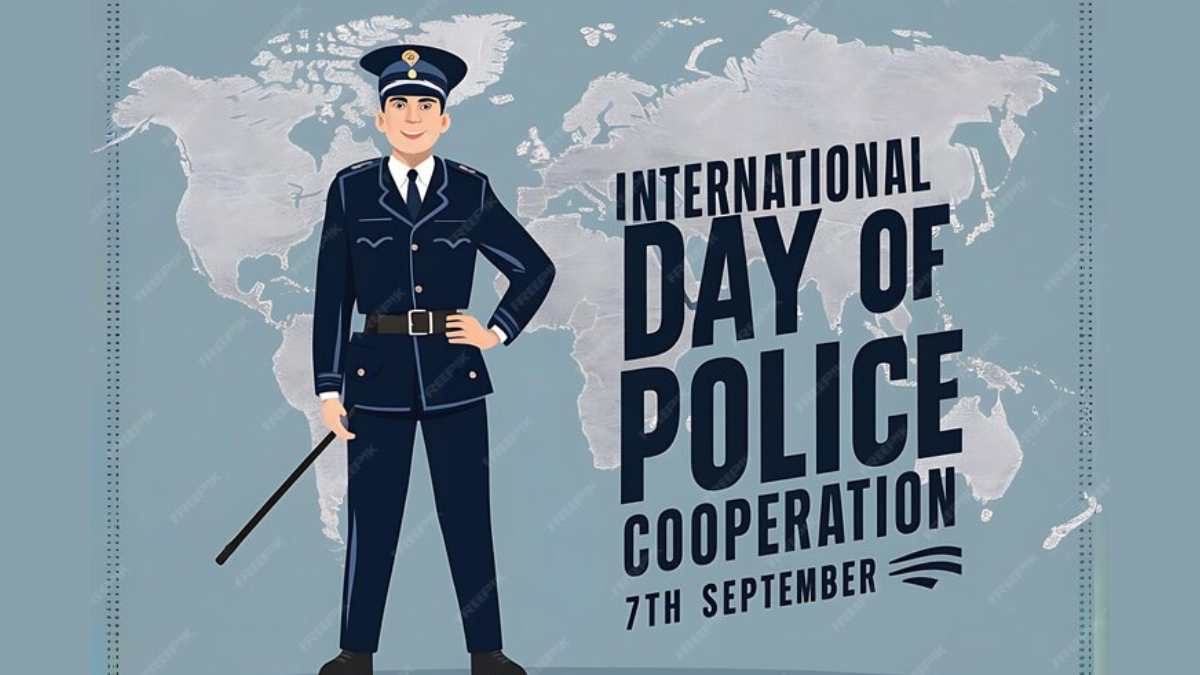International Day of Police Cooperation 2024 [Current Affairs]
On September 7, the world observes the International Day of Police Cooperation, recognizing the crucial role of law enforcement in global security. This day highlights the importance of collaboration among police forces worldwide and emphasizes the need for a comprehensive framework to ensure police integrity, accountability, and oversight.
Historical Context and Significance
Establishment of the Day
The International Day of Police Cooperation was officially designated by the United Nations General Assembly through a resolution adopted on December 16, 2022. The choice of September 7 as the date for this observance is significant, as it coincides with the centenary of INTERPOL (International Criminal Police Organization). The International Criminal Police Commission (ICPC), INTERPOL’s predecessor, was established on September 7, 1923.
First Commemoration
The world marked the first International Day of Police Cooperation in 2023, aligning with INTERPOL’s 100th anniversary celebration.
Key Objectives and Focus Areas
Global Cooperation
The day emphasizes the critical need for sharing resources, intelligence, and expertise across borders to effectively combat crime and other illicit activities on a global scale.
Accountability and Oversight
A primary focus of this observance is to highlight the importance of establishing a robust framework for police oversight and accountability. This includes:
- Implementing preventive measures
- Conducting consistent and rigorous oversight
- Developing effective systems for reviewing and addressing police conduct
Fostering Integrity and Transparency
The day serves as a reminder of the need to cultivate a culture of transparency and integrity within law enforcement agencies worldwide. This is crucial for enhancing public trust and ensuring that policing effectively serves and protects communities.
United Nations Initiatives
Inter-Agency Task Force on Policing
The United Nations Inter-Agency Task Force on Policing plays a pivotal role in commemorating this day. It emphasizes three key aspects of effective policing:
- Police integrity
- Accountability
- Oversight
These elements are crucial for:
- Strengthening the rule of law
- Ensuring human rights-based and effective policing
- Enhancing public trust in law enforcement agencies
Comprehensive Approach to Oversight
The UN advocates for a holistic approach to police oversight that goes beyond addressing misconduct after the fact. This approach includes:
- Preventive measures
- Consistent and rigorous oversight mechanisms
- Robust systems for reviewing and addressing police conduct
Global Challenges and the Need for Cooperation
Transnational Crime
Modern criminal activities often transcend national borders, both physically and virtually. Some key areas of concern include:
- Cybercrime
- Terrorism
- Organized crime
- Financial crime
Technological Challenges
Criminals are increasingly exploiting technological advancements:
- Taking advantage of increased digitalization for attacks
- Using social networks and technology platforms to target vulnerable victims
- Traveling on stolen passports and ID cards to evade law enforcement
Human Trafficking
The trafficking of people and illicit goods often involves multiple countries at various stages:
- Source countries
- Transit countries
- Destination countries
INTERPOL’s Role
INTERPOL emphasizes that criminals exploit weak links in global security. To counter this, the organization stresses the importance of:
- Providing all countries with the latest intelligence
- Ensuring access to policing information and databases
- Offering training on how to utilize these resources effectively
India’s Perspective on International Police Cooperation
India strongly supports the cooperation of international police organizations in combating all forms of crime and terrorism. Key points from India’s viewpoint include:
Technological Crime Focus
Union Home Secretary Govind Mohan highlights the increasing importance of international police cooperation in tackling technology-enabled crimes that transcend borders.
Real-Time Cooperation
The rise of transnational and organized crime necessitates real-time international police cooperation.
Digital Evidence
Prevention, detection, investigation, and prosecution of crime increasingly rely on digital evidence and foreign-located evidence.
New-Age Crimes
Mohan emphasizes that new-age crimes are not confined by borders, including:
- Cyber-enabled financial crimes
- Online radicalization
- Transnational organized crime networks
Source: currentaffairs by adda247
